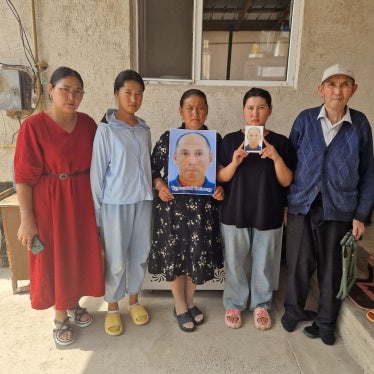2012 brought significant progress for the rights of domestic workers, with dozens of countries adopting policy or legislative measures to strengthen protections for domestic workers, including 8 that moved to ratify the ILO Convention Concerning Decent Work for Domestic Workers (ILO Convention 189, Domestic Workers Convention). Below is a summary of noteworthy developments.
Ratification of the Domestic Workers Convention:
During the year, 8 countries moved to ratify the Domestic Worker Convention. Uruguay deposited its instrument of ratification on June 14, the Philippines deposited its instrument on September 5, and Mauritius deposited its instrument on September 13.
In addition, Bolivia, Colombia, Nicaragua, Paraguay and Italy all approved ratification, though their instruments of ratification have not yet been deposited. The Convention will enter into force in September 2013.
Public Pledges of Ratification:
At the 2012 International Labor Conference, several governments, including Belgium, Benin, Kenya, Mauritius, Paraguay, and the Philippines made public statements regarding ratification of the Domestic Workers Convention. Colombia announced during the March 2012 Governing Body its intention to ratify the convention.
Other Progress towards Ratification:
Forty-eight countries have submitted the Domestic Workers Convention to competent national authorities.
Costa Rica: The Legislative Assembly approved a draft law approving the Convention on September 13.
Dominican Republic: The Senate approved a draft law approving the Convention in July 2012; it is now pending in Congress.
South Africa: The Cabinet approved ratification on September 4, 2012.
Legislation and Policies to Protect Domestic Workers:
Angola: Discussions are underway concerning a bill which will establish regulations in line with the Domestic Workers Convention.
Argentina: The Congress is considering a bill to expand protections for domestic workers, including overtime, a 48-hour work week sick leave, and compensation for those fired for unjust cause. The Senate approved the bill in late November.
Bahrain: In July, Bahrain reformed its labor law and expanded some protections for domestic workers, including annual leave and codified access to mediation of labor disputes.
Brazil: In November, the House of Representatives approved an amendment to the Constitution stipulating that domestic workers have the same rights as other workers. The amendment, now pending in the Senate, would give domestic workers the right to a pension, unemployment insurance, a maximum 44-hour work week, the minimum wage, and other benefits.
Chile: The Chamber of Deputies approved a bill regarding working time for domestic workers on September 13. It is now pending in the Senate.
India: In May, the government extended the Rashtriya Swasthya Bima Yojana (RSBY) health insurance scheme to domestic workers. In September, the lower house of Parliament, the Lok Sabha, passed a bill protecting women, including domestic workers, from sexual harassment on the job. The bill is now pending in the upper house of Parliament, the Rajya Sabha.
Indonesia: A draft domestic workers law is pending and will be taken up in 2013.
Namibia: In May, the government appointed the first Wages Commission for Domestic Workers and announced nationwide hearings. The Commission will recommend a new minimum wage for domestic workers, investigate conditions of employment, and recommend protections for child domestic workers.
Morocco: A domestic workers bill is being prepared by the government for presentation to Parliament, ensuring a contract, weekly day off, paid annual leave, and a minimum wage, among other provisions.
Philippines: In November, both the House and Senate approved a Domestic Workers Act, which mandates contracts, a minimum wage, social protection, and other benefits for domestic workers.
Singapore: The Manpower Ministry announced in March that foreign domestic workers will receive a weekly day of rest beginning in 2013. Singapore has also implemented a reform capping the recruitment fees that may be deducted from a domestic worker’s salary to two months, a significant reduction from the prevailing practice of 8 to 10 months out of a two-year-contract.
Thailand: On October 30, a Ministerial Regulation was approved specifying that domestic workers are entitled to at least one day off each week, paid sick leave, and paid overtime for work on holidays. Hiring domestic workers under age 15 is strictly forbidden.
United Arab Emirates: The Federal National Council approved a bill providing domestic workers with a weekly day off, and paid holidays, annual leave, and sick leave. It awaits signature by the president.
Venezuela: In April, the president promulgated a new labor law that extends its provisions to domestic workers, including a 40-hour work week, 2 weekly days of rest, paid holidays, and a minimum wage.
Zambia: In July, the government increased the minimum wage for domestic workers, with their base pay increasing by 68 percent.








